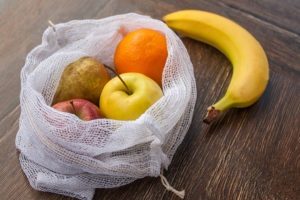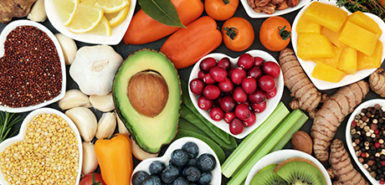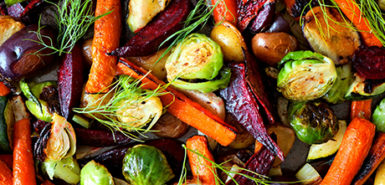
It can definitely be humbling to realize the average American family produces more than 6,000 pounds of trash each year.
All that waste can do a lot of harm to the environment.
What if you could reduce trash production while also improving your health?
Well, you can.
Here are a few small, sustainable changes that can benefit your health and the health of the environment.
Reduce packaging
Make the produce section your best friend and buy whole-food options that don’t have packaging.
Whole foods and plant-based items deliver a host of benefits to your health.
For the planet, this will drastically cut down on waste packaging.
You can visit bulk grocery stores for package-free items. This isn’t your membership-only warehouse down the street.
At a bulk food store, you bring reusable containers to fill with staples such as rice, pasta, nuts, flour or even spices—and you only pay for the amount you purchase.
Get outside
Wish you had fresh produce all summer long? Consider planting your own garden.
Fresh fruits and veggies and unprocessed foods can change your life.
They can also change the planet. Place your leftover food scraps into a compost bin. Your food waste can then decompose naturally, producing nutrient-rich soil that you can add back into the environment—or into your garden. Best of all? It’s organic.
Buy seasonal
Look for seasonal produce at the grocery store for a more sustainable purchase.
Try looking for ugly produce that would’ve been tossed due to its imperfect nature. It’ll taste just as good as the better-looking items. Your fellow shoppers may leave the lesser items unpicked, but you would be doing your part to eliminate food waste.
You can browse what’s in season for your area here and check out local farmers markets.
Buy local
Buying local supports hard-working farmers and the environment.
Take a trip to your local farmers markets. Participate in a community supported agriculture program, or CSA, which reconnects farmer to consumer. You’ll receive a CSA box weekly complete with plenty of seasonal, hand-picked produce.
You can also consider purchasing responsibly raised meat. Purchasing directly from the source ensures you know exactly where your protein is coming from.
Eat plant-based
A plant-based diet is the most sustainable diet choice out there. It’s ideal for your health—even if you’re a high-performing athlete—and it’s ideal for the planet.
You may remove all animal products when you follow a plant-based diet, but you also add in lots more tasty and healthy plant-based items. Cooking can also become more exciting as you explore new dishes.
Opt for reusable products
All those plastic baggies and sheets of plastic wrap you use for shopping and cooking? They ultimately get thrown into a landfill, where it’ll take more than a lifetime to decompose.
Try resuable items such as silicone bags, beeswax wrap, and cloth produce bags. These products can be used for years before they need to be replaced. You’ll soon forget all about plastic wrap.
Have you tried the shop and scan option at some grocery stores? You scan and bag all your own items, eliminating the need for long checkout lines and endless plastic bags.
Just remember: Any sustainable swaps you make will have a positive impact on the environment.
And if any part of this list seems overwhelming, consider choosing just one or two areas for improvement.
In no time at all, you’ll start to notice a reduction in your weekly trash—and a boost in your health.
 /a>
/a>
 /a>
/a>
 /a>
/a>
Great perspectives on keeping ourselves and the planet healthy for future generations. A new idea i take away from this is picking the ugly “misfit” produce to enjoy! Thanks!!
Thank you for the good info. Will try to bring cloth bags for produce.